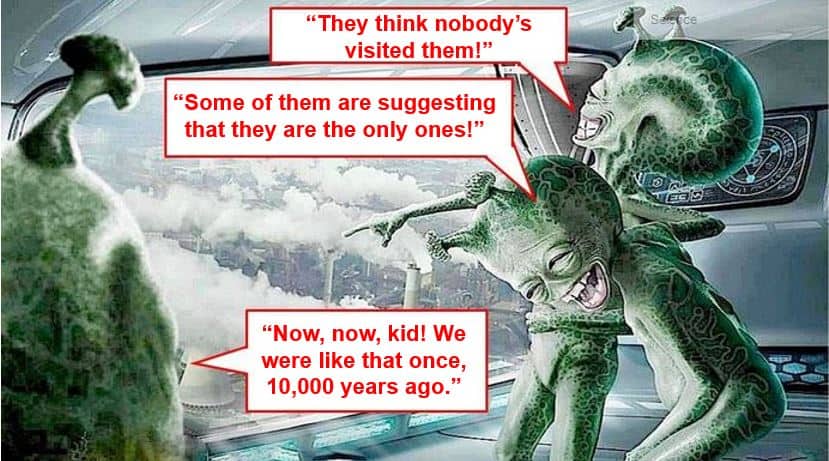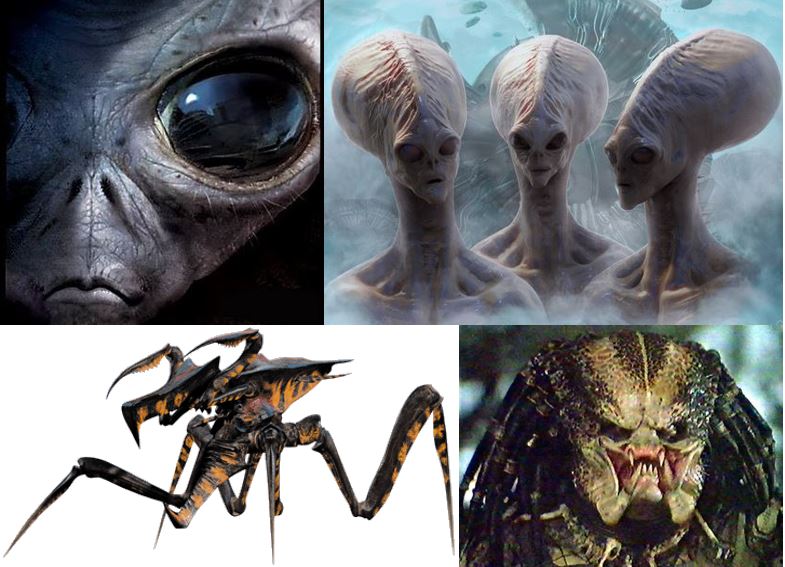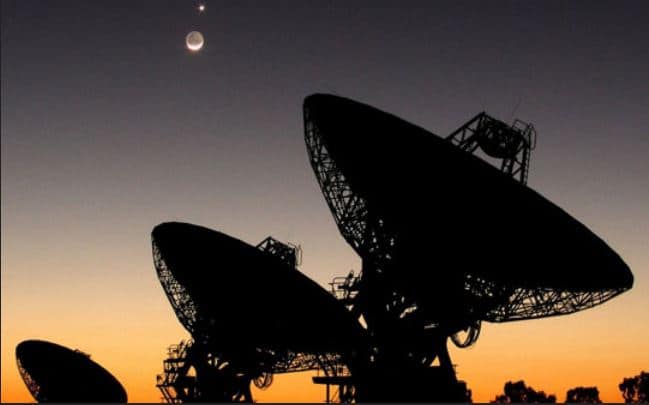When aliens come to visit us they will call the shots not us. They will decide whether we benefit or suffer from their arrival, whether to be our friends, experiment on us, eat us, make us their slaves or pets, or destroy us. We will be completely at their mercy, says Dr. Jill Tarter who works at the SETI Institute.
The SETI Institute is a not-for-profit organisation with one mission – to “explore, understand and explain the origin, nature and prevalence of life in the universe”. SETI stands for the “search for extraterrestrial intelligence.”
In an interview with Emily Calandrelli at TechCrunch, Dr. Tarter said:
“If they showed up on our doorstep, that means they have technologies that are considerably advanced with respect to ours. And because of that, they’re going to be the ones that set the rules.”
 Dr. Jill Tarter became an AAAS fellow in 2002. She has received a Lifetime Achievement Award from Women in Aerospace, two NASA Public Service Medals, and was named Time 100 most influential people in the world in 2004. (Image: www.seti.org)
Dr. Jill Tarter became an AAAS fellow in 2002. She has received a Lifetime Achievement Award from Women in Aerospace, two NASA Public Service Medals, and was named Time 100 most influential people in the world in 2004. (Image: www.seti.org)
They’ll be far more advanced than we are
If they have the ability to travel several light years through space, they will be hundreds, thousands and perhaps millions of years more advanced technologically, scientifically and in terms of evolution than we are. The difference between them and us could be far greater than the difference between us and, for example, hamsters.
Dr. Tarter believes that any alien that comes to visit us is likely to be peaceful and nice. She thinks Steven Pinker is right. Dr. Pinker, Johnstone Family Professor in the Department of Psychology at Harvard University, suggests that humans have become more peaceful, gentler and kinder as we have evolved.
”Today, we may be living in the most peaceable era in our species’ existence,” Prof. Pinker once said.
In his book – The Better Angels of Our Nature – Prof. Pinker points out that the murder rate of Medieval Europe was more than thirty times what it is today. For thousands of years, humans practiced slavery, sadistic punishments, and cruel executions – that is, until we became more civilized.
Prof. Pinker wrote:
“Wars between developed countries have vanished, and even in the developing world, wars kill a fraction of the people they did a few decades ago. Rape, battering, hate crimes, deadly riots, child abuse, cruelty to animals – all substantially down.”
Prof. Pinker backs his argument with some compelling statistics.
 How do we know that no aliens have visited us?
How do we know that no aliens have visited us?
Stephen Hawking not sure aliens would be nice
British theoretical physicist, cosmologist and author, Professor Stephen Hawking has a completely different opinion regarding aliens. In the TV series Into the Universe, he reminded us of what happened to the American Indians after Christopher Columbus set foot on the New World.
Prof. Hawking said:
“If aliens visit us, the outcome would be much as when Columbus landed in America, which didn’t turn out well for the Native Americans.”
Why would a super-advanced civilization not harm us? We are more intelligent and more ‘civilised’ than all other creatures on Earth – and how do we treat them?
We eat animals, perform experiments on them, kill them when they are considered dangerous (pesticides), we hunt them for sport, keep them as pets, display them in cages and enclosures in zoos for our pleasure, occupy their habitats, and drive several of them to extinction.
Dr. Tarter believes that maybe a species can only advance to a point where their technology and science is far more advanced than ours if they learn to exist in a non-aggressive manner. Aggressive beings with super-powerful weapons don’t exist for long – they end up destroying themselves.
Perhaps intelligent aliens (and humans one day) can only become mega-advanced if they come together as a cohesive entity.
Dr. Tarter then adds “But no one can really know. This is all speculation.”
 We have no idea how aliens would treat us. However, most likely the choice would be theirs, not ours.
We have no idea how aliens would treat us. However, most likely the choice would be theirs, not ours.
Sixty years searching for aliens
SETI and other organisations have been actively searching the Universe for alien life for more than sixty years. Even though technology during that time has advanced tremendously and SETI now has state-of-the-art tools and strategies, we have not found any compelling or conclusive evidence of anything at all.
When asked why she became interested in working at SETI, Dr. Tarter said:
“I was so impressed by the idea that, after millennia of asking the philosophers what we should believe about whether there was life out there, suddenly in the middle of the 20th century we had the tools – computers and radio telescopes – that would allow us to try to find out what is rather than what someone told us to believe. I thought, ‘this is fabulous.’”
Why have we found nothing yet?
Lay people and scientists often wonder and argue about this, Dr. Tarter says. She explains that there are two pieces to this puzzle.
1. The Universe is mega huge: we have only looked at a tiny fraction of the Universe. To get an idea of how much more there is to investigate out there, Dr. Tarter gives the example of our oceans. Imagine we were searching in our oceans for something – we have examined just one glass of water so far.
2. We don’t have the tech: perhaps we do not have the technology yet to be able to detect things out there. “We may not have invented the right way to do this yet,” Dr. Tarter said.
 SETI stands for Search for Extra-Terrestrial Intelligence. (Image: seti.org)
SETI stands for Search for Extra-Terrestrial Intelligence. (Image: seti.org)
Suggestions for the ‘silent’ Universe
Below are several suggestions people have sent to us at Market Business News over the years or we have reported on, regarding why we have found no signs of extraterrestrial life yet:
– We don’t know how to listen: for all we know, we may be bombarded with messages from several parts of the Universe all the time. We just don’t know how to pick it up yet.
– They have a Prime Directive: as in the TV series Star Trek, the Prime Directive does not allow space travelers to let primitive civilisations know about their existence. This could mean they are here, either hiding in plain sight, using a cloaking device, etc.
– They are too far away: space is an enormous place. It could be teeming with life. However, if the nearest alien is a 100 million light years away, the chances of our detecting something is tiny. If they sent a message a million years ago, we will pick it up (if we can) in 99 million years’ time.
– We are the only ones: many people think this is likely, especially individuals with strong religious beliefs.
– We make too many assumptions: why does life have to be carbon based? Why does life out there have to need water, light and an atmosphere? Isn’t that a bit naive (arrogant) on our part? Perhaps we are going about it the wrong way.
– Aliens once existed but not any more: astrobiologists from the Australian National University suggested last month that extraterrestrial life has existed out there, but they became extinct, and that is why the Universe is so silent.
Visit our Alien news section, with summaries and links to more than forty articles on aliens, UFOs or both.
Video – Jill Tarter: Why the search for alien intelligence matters
Jill Tarter makes her TED Prize wish: to accelerate our search for alien life.

